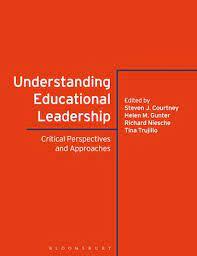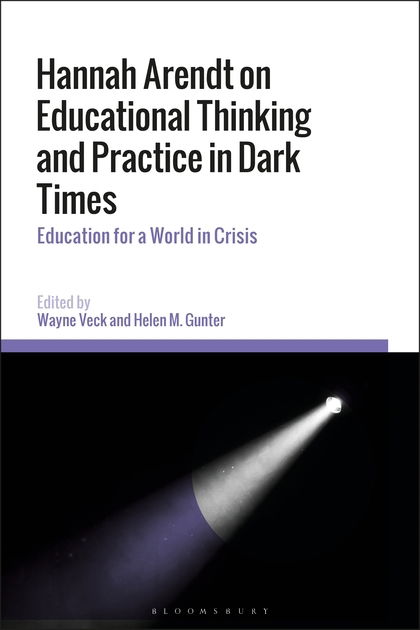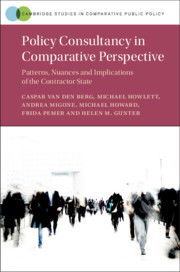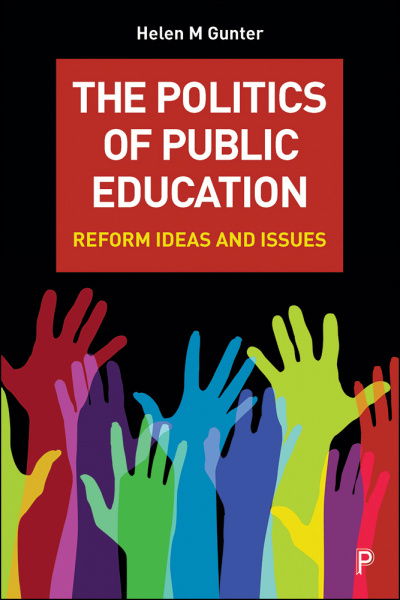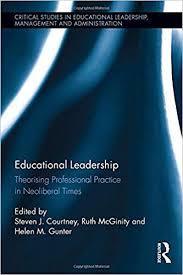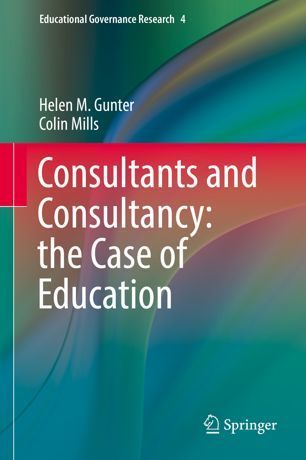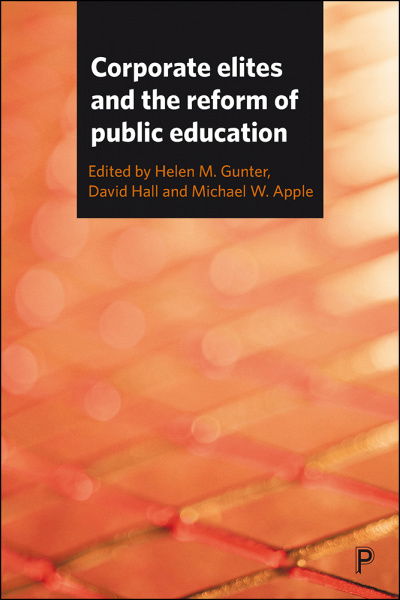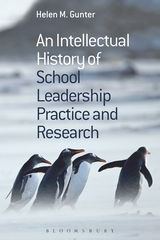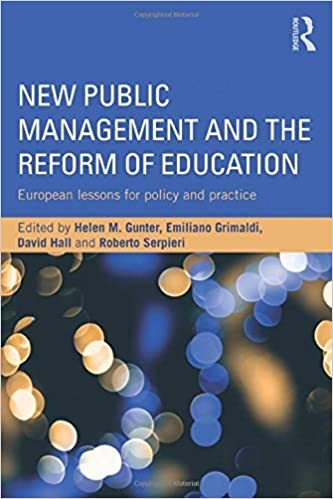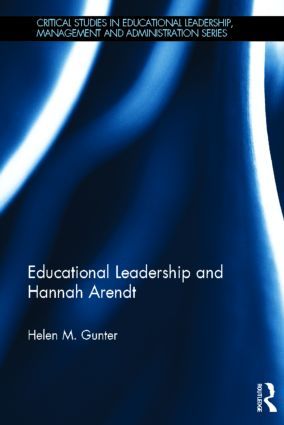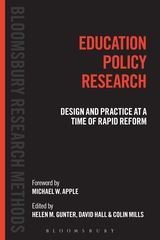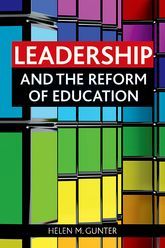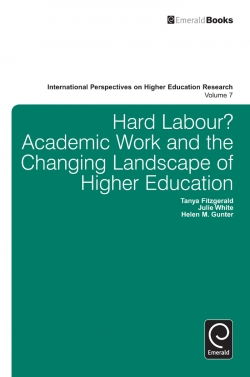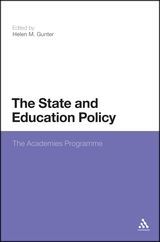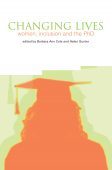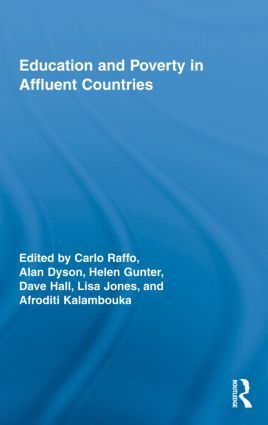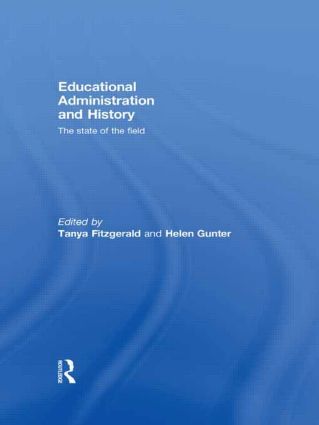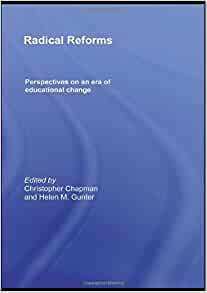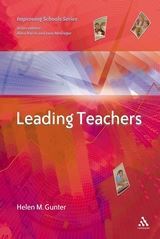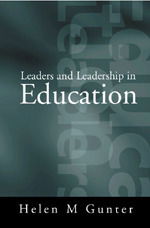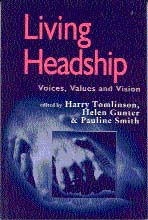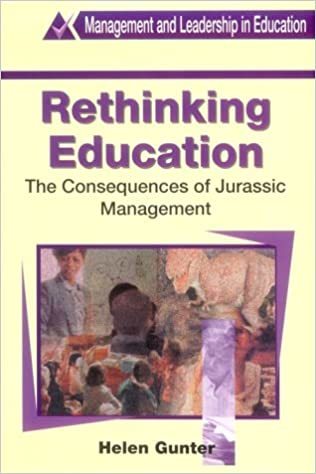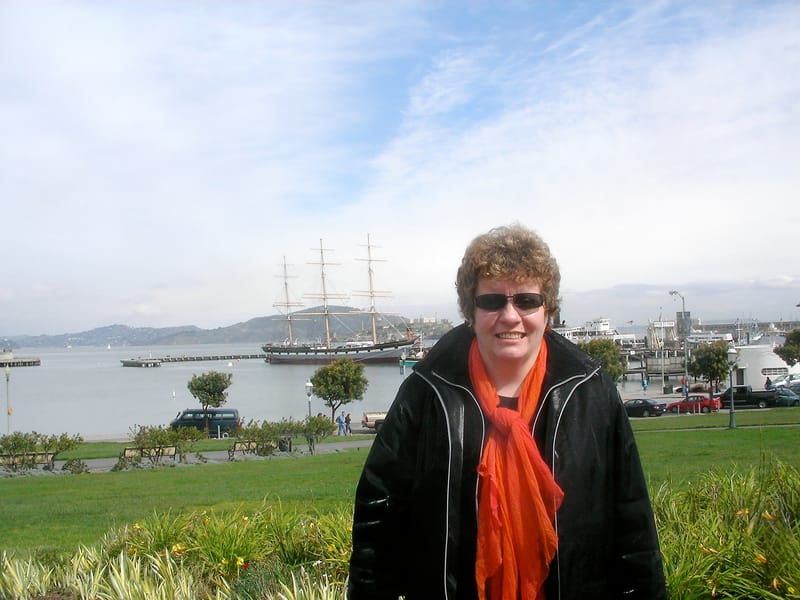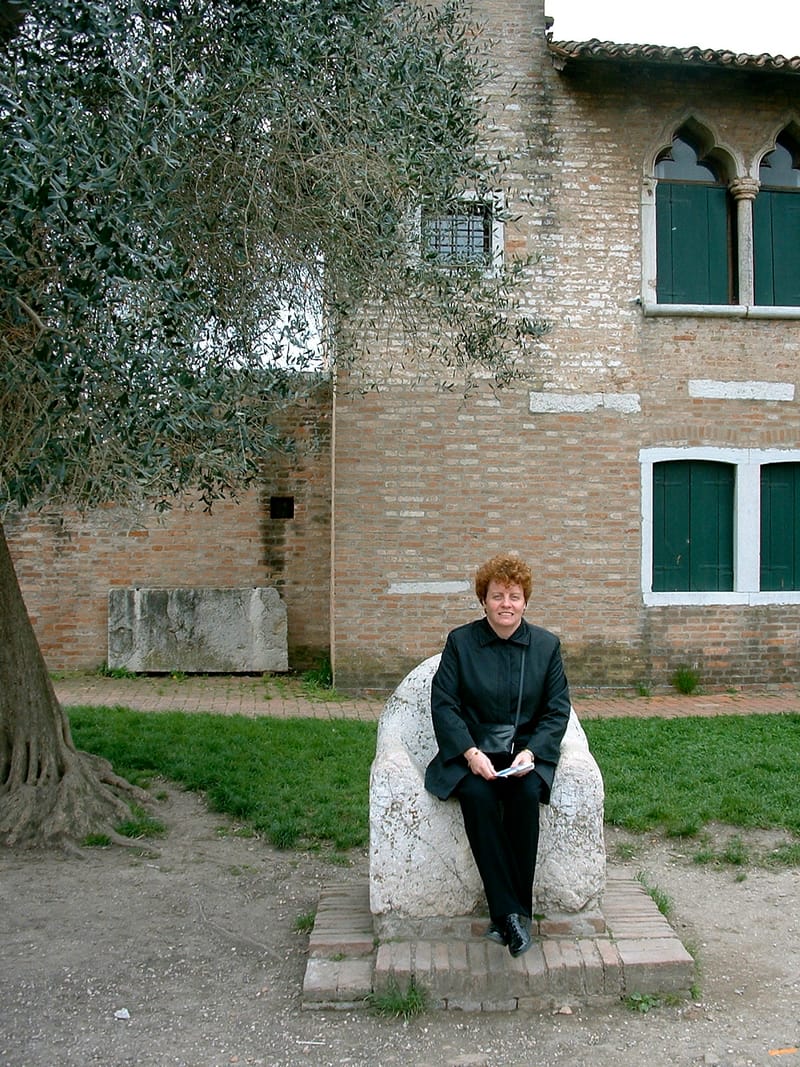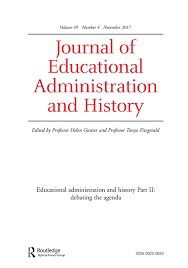Helen M Gunter
Critical Education Policy Researcher
About me
My research focuses on the knowledge production and the politics of education policy, with particular attention to the field of educational leaders, leading and leadership.
https://www.research.manchester.ac.uk/portal/helen.gunter.html

Society for Educational Studies Book Award 2024
A political sociology of education policy
This book was published by Policy Press in 2023. https://policy.bristoluniversitypress.co.uk/a-political-sociology-of-education-policy A full account of the book is in another part of the webpage.
Society for Educational Studies Book Award 2024
On the 21st November 2024 the award was made at the annual Fellows Dinner. https://soc-for-ed-studies.org.uk/prizes-grants-and-applications/annual-book-prizes/
Helen Gunter
Here I am receiving the award from Professor Stephen Parker (right), and with my husband Barry Gunter (left).
Helen Gunter
A picture of me with the award.
2024: Intellectual Leadership
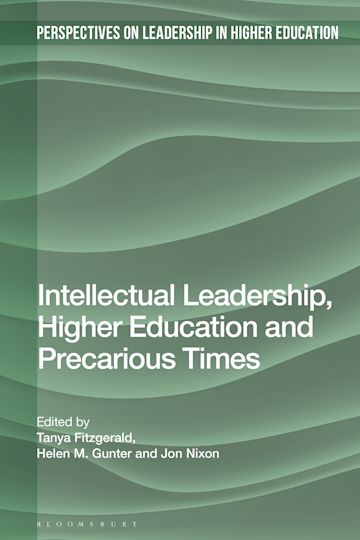
This book draws on interdisciplinary social science and philosophical frameworks to offer new dimensions to debate about intellectual leadership and higher education.
The chapters are focused on provoking readers to think critically about intellectual leadership in precarious times. The contributors frame critical questions about the unevenness, ambivalences, and disruptions that now mark everyday life and interactions. Rather than thinking about 'freedom from precarious times and precarity' they consider 'freedom from within' and how the sovereignty and autonomy of the individual to think and speak within the public realm might be retained, if not reclaimed. In the precarious present and in times of precarity, what has changed and why? What might now be the new social reality within which we work?
Each of the contributors have been invited to take up their own perspective on what is precarious, and to examine the impacts on intellectual leadership. What does it mean to do intellectual work and be an intellectual leader? What are the implications for intellectual work and leadership if the academy itself is in precarious times?
2023: Festschrift
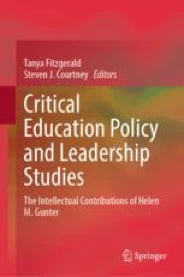
The project was led by Professor Tanya Fitzgerald (University of Western Australia) and Professor Steven J Courtney (University of Manchester).
This edited collection is a Festschrift to Helen M. Gunter, a leading scholar in the field of education policy and leadership. We draw on the concept of the Festschrift as a collection of papers, or chapters, that recognise, honour, and celebrate the work and contributions of an esteemed academic. Gunter’s work has opened up the field of critical education policy and leadership studies and provoked, if not revitalised, scholarly thinking about the origins, structures, patterns and impact of the field. Gunter’s personal commitment to intellectual leadership of the field and public education resonates across all her scholarly works.
The core intention of this unique collection is to recognise Gunter’s scholarly contributions as an academic, practitioner and public intellectual. Invited authors have been asked to reflect critically on ways in which Gunter’s work and intellectual support have influenced their own research, teaching and academic engagement. In their reflections, contributors not only speak to the intellectual work of Gunter but suggest how they have taken this work forward and how this has advanced the field of education as well as the production of knowledge.
The details are:
Fitzgerald, T. and Courtney, S.J. (Eds.) (2023) Critical Education Policy and Leadership Studies: The Intellectual Contributions of Helen M. Gunter. Cham, Switzerland: Springer.
https://link.springer.com/book/10.1007/978-3-031-36801-1
2023 Political Sociology
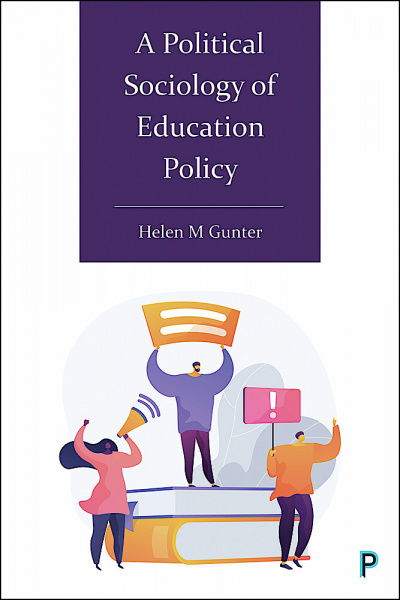
A Political Sociology of Education Policy
Helen M Gunter
The segregation of education services is based on an education reform claimocracy that espouses eugenicist beliefs in order to sustain oligarchic club sovereignty as modern and modernising. The book presents empirical data and conceptual analysis from a range of projects to understand and explain segregation through undertaking a political sociology of education policy.
Chapter 1 Introduction: Education Reform Claimocracy
This introduction presents the case for a political sociology of education policy in order to understand and explain the use of an education reform claimocracy to defend and promote segregated education. Based on empirical and conceptual work from the Education Policy Knowledgeable Polities projects the case is made for the interplay and deployment of Arendtian and Bourdieusian thinking tools to reveal policy violence. This policy violence is authorised, legitimate and intelligent, and is examined in Part 1 of the book. Understandings and explanations of policy violence are presented in Part 2 of the book through a Thinking Politically-Sociologically Framework (TPSF) that includes: vantage points, viewpoints, regimes of practices, exchange relationships, and the intellectual histories underpinning knowledge production for and about policy.
Part 1: A political sociology of education policy
Chapter 2 Modernising Education
Segregated education services are enabled through eugenicist populism, and the chapter examines five main modernisation trends in general and in education policy that enable and sustain the eugenicist fabrications that are used to justify selection and secession. Policy violence is examined through a focus on social mobility as a form of legitimised violence. While the ERC uses the language of aspiration and opportunity, the continued investment in segregation based on natural inferiority-superiority limits aspirations and opportunities for the majority of children.
Chapter 3 Governing by Knowledge Production
Segregated education services are enabled through how private and globalised oligarchies occupy the state and use governing to control the ERC through knowledge production. Oligarchies are promoters and beneficiaries of depoliticization, and three forms in general and in education policy are identified: depoliticised privatism, corporatisation and populism. Policy violence is examined through a focus on problem solving as a form of authorised violence. While the ERC focuses on the centrality of improvement and effectiveness through problem identification and solutions, in reality power is evacuated, relationality silenced and action denied.
Chapter 4 Policy Mortality
Segregated education services are enabled through the use of failure, as policy mortality, that is integral to education policy. Children, professionals and schools have to experience the fear and actuality of failure for markets and choice to operate. The ERC is a product of and shapes the knowledgeable state, where the Education Policy Knowledgeable Polity projects demonstrate data and analysis in four main themes: Theme 1 system design; Theme 2 the workforce; Theme 3 policy actors; and Theme 4 knowledge production. Policy violence is examined through a focus on problem solving as a form of intelligent violence that is weaponised, calculated and enacted. While the ERC focuses on what is worth knowing about because it works, in reality this turns schools into what Arendt identifies as deserts.
Part 2: A political sociology of education policy in action
Chapter 5 Vantage Points
The starting point of the TPSF is to examine vantage points or the organisational location of the person or group involved in the claimocracy. Four vantage points are examined: core, privileged, marginal and othered, and the data show that the prime vantage point is the core. A case study from Theme 1: System Design is presented, where data and analysis are used to demonstrate policy violence through the dismantling of the local government provision of school places and its replacement with academies.
Chapter 6 Viewpoints
Following on from examining vantage points within the TPSF is the need to investigate viewpoints or the knowledge production position of the person or group who create and espouse the claimocracy. Three ontological and epistemological positions are identified: positivist, interpretive and critical, and based on this four knowledge production and viewpoints are presented: functional science, normative instrumentalism, narrative description and critical social justice. It is argued that a hybrid of positivist functional science and normative instrumentalism dominates that is called normative functionalism. A case study from Theme 2: Workforce is presented, where data and analysis are used to demonstrate policy violence towards the profession.
Chapter 7 Regimes of Practice
Following on from examining vantage points and viewpoints within the TPSF is the need to investigate regime inter-connections that enable the claimocracy. Three types of regimes are identified: state, satellite and star, where state regimes dominate, this is examined through a study of the Conservative Privatisation Regime, and the New Labour Performance Regime. A case study from Theme 3: Policy Actors is presented, where data and analysis are used to demonstrate policy violence towards the profession regarding the imposition of leaders and follower hierarchy.
Chapter 8 Exchange Relationships
Following on from examining vantage points, viewpoints and regimes within the TPSF is the need to investigate exchange relationships that secure the claimocracy. Five forms of exchange relationships are presented: personal, employment, project, socio-political and cultural, and it is argued that personal-cultural contractualism dominates. A case study from Theme 3: Policy Actors is presented, where data and analysis about local policymaking are used to demonstrate policy violence through how strategic and tactical change are understood and engaged with regarding academisation.
Chapter 9 Critical Education Policy Studies
Following on from examining vantage points, viewpoints, regimes and exchange relationships within the TPSF is the need to investigate the knowledge production that underpins the claimocracy. Four policy positions in relation to criticality within Critical Education Policy Studies are identified: description, science, entrepreneurialism, and scholarship, where the primacy of entrepreneurialism is examined. A case study from Theme 4: Knowledge Production is presented where the writing and conceptualisation of intellectual histories demonstrates how policy violence is based on recognising wants, needs and likes, and the denial of intellectual activism.
Chapter 10 Conclusion: Intellectual Activism
This chapter is the conclusion to the book, and a summary of the arguments about segregation and eugenics in education is provided by using the Thinking Politically-Sociologically Framework. The argument is that political sociology enables the Critical Education Policy Studies field to think productively in relation to, first, a political sociology of and about the education reform claimocracy; and second, a political sociology for and by the field regarding positioning within and in relation to the claimocracy. It is argued that research and scholarship within and by the field of Critical Education Policy Studies is in danger and so may find the adoption of little agoras and intellectual activism helpful regarding revitalising the purposes and practices of research.
Advanced ordering:
https://policy.bristoluniversitypress.co.uk/a-political-sociology-of-education-policy
This book is the third in a trilogy:
https://policy.bristoluniversitypress.co.uk/leadership-and-the-reform-of-education
https://policy.bristoluniversitypress.co.uk/the-politics-of-public-education
Doctoral projects
Books
Projects
Blog
Editing
Articles
In these pages I intend presenting short articles that focus on knowledge production and educational policy/leadership
The first CEPaLS article is a reissue of my inaugural lecture from 2005.
In this paper I review Foster's contribution in his 1986 book Paradigms and Promises
This paper reports on my review of this edited collection.
This is an updated version of the paper I gave at BELMAS in 2004 based on my work in the 1990s on the use of Chaos Theory and field development.
This is a review essay I wrote for a symposium focused on the book at at BELMAS conference.
CEPaLS 06 is the paper I gave at the American Educational Research Association Annual Meeting, San Francisco, USA, April 2013.
This is a paper that I gave at a conference in 2007.
This is text I produced for a commissioned project report that was not used.
This is a paper I gave at the 2011 BELMAS conference
This is a paper I gave with Alejandro Carrasco and Gabriel Gutierrez at the 2016 BERA conference.
Doctoral project supervision
| Date | Award | Student Name | Title |
| 2021 | EdD | James Twigg | Towards an understanding of children’s accounts of learning in primary schools. 50,000 word thesis, plus supervision of the three 10,000 word research papers as part of the Doctoral programme. |
| 2020 | PhD | Luyao Huang | Social capital, education and entrepreneurial development 80,000 word thesis. |
| 2019 | PhD | Belinda (Bee) Hughes | An investigation into the Chief Executive Officer of a Multi Academy Trust in England. 90,000 word (Journal Format) Thesis. |
| 2019 | PhD | Omar Kaissi | Researching corporeality in education: an investigation of knowledge production in gender and education on boys and masculinities. 90,000 word (Journal Format) Thesis. |
| 2019 | EdD | Dr Lee Webster | An investigation into informed learning and postgraduate study: the SPIDER case study. 60,000 word thesis (Alternative Format), plus supervision of the three 10,000 word research papers as part of the Doctoral programme. |
| 2019 | EdD | Becky Lunson Southall | Peer Wellbeing Champions in Secondary Schools. Towards an understanding of online-peer-mentoring and wellbeing. 50,000 word thesis, plus supervision of the three 10,000 word research papers as part of the Doctoral programme. |
| 2019 | EdD | Lewis Entwistle | An investigation into building democratic values and practices through young people’s experiences of knowledge and learning in a sixth form college 50,000 word thesis, plus supervision of the three 10,000 word research papers as part of the Doctoral programme. |
| 2018 | EdD | Caroline Leah | Approved Mental Health Professionals: negotiating dialogic identities as hybrid professionals 50,000 word thesis. |
| 2017 | EdD | Liz Gregory | Towards a collective identity: a study of learners self-perception in the FE environment 50,000 word thesis, plus supervision of the three 10,000 word research papers as part of the Doctoral programme. |
| 2017 | PhD | Wazerah Bawazeer | Women in leadership in higher education in KSA 80,000 word thesis. |
| 2017 | EdD | Stephen Rayner | Values and policy enactment: the interrelationship between decision-making processes, values and professional practice in an English secondary school. 60,000 word thesis (Alternative Format) plus supervision of the three 10,000 word research papers as part of the Doctoral programme. |
| 2017 | EdD | Andy Graham | A study of the perceptions of academic staff of workload and performance management models. 50,000 word thesis, plus supervision of the three 10,000 word research papers as part of the Doctoral programme. |
| 2017 | EdD | Jennifer Silverthorne | An investigation into pharmacist professional formation. 50,000 word thesis, plus supervision of the three 10,000 word research papers as part of the Doctoral programme. |
| 2016 | EdD | Michael Burnitt | Primary Headteachers: Perceptions on Standards, Accountability and School Context 50,000 word thesis, plus supervision of the three 10,000 word research papers as part of the Doctoral programme. |
| 2016 | EdD | Aleksander Jedrosz | Science teaching spaces: their impact on teaching. 50,000 word thesis, plus supervision of the three 10,000 word research papers as part of the Doctoral programme. |
| 2016 | EdD | Rachel Chard | A study of current teacher professionals and their attitudes towards promotion and careers. 50,000 word thesis, plus supervision of the three 10,000 word research papers as part of the Doctoral programme. |
| 2015 | PhD | Steven J Courtney | Investigating school leadership at a time of system diversity, competition and flux. 90,000 word (Alternative Format) thesis. |
| 2015 | EdD | Tony Fort | Constituting the Managerial Subject: an investigation into middle management in FE. 50,000 word thesis, plus supervision of the three 10,000 word research papers as part of the Doctoral programme. |
| 2015 | EdD | Victoria Ruth Johnson | Policy, practice and assessment: revealing the relationship between the GCSE English assessment and educational reproduction. 50,000 word thesis, plus supervision of two out of the three 10,000 word research papers as part of the Doctoral programme. |
| 2014 | PhD | Ruth McGinity | An investigation into localised policymaking at a time of rapid educational reform in England. 80,000 word thesis. |
| 2014 | EdD | Julian Skyrme | Contextual admissions and social justice in selective English higher education institutions. 50,000 word thesis, plus supervision of the three 10,000 word research papers as part of the Doctoral programme. |
| 2013 | PhD | Olga Campbell-Thomson | Exploring the process of national identity construction in the context of schooling in The Turkish Republic of Northern Cyprus 80,000 word thesis. |
| 2013 | EdD | Patricia Davies | Student leadership of ICT for learning in a high school. 50,000 word thesis, plus supervision of the three 10,000 word research papers as part of the Doctoral programme. |
| 2013 | PhD | Ana-Cristina Popescu | Headteachers and the Decentralisation of Public Education in Post-Communist Romania. 80,000 word thesis. |
| 2013 | PhD | Christiana Karousiou | An Exploratory Study into Primary Teachers’ Professional Identity at a Time of Educational Reform in Cyprus. 80,000 word thesis. |
| 2012 | EdD | Adrian Lythgoe | A study of the professional identities of senior school leaders in areas of economic hardship. 50,000 word thesis, plus supervision of the three 10,000 word research papers as part of the Doctoral programme. |
| 2012 | PhD | Stephen Rogers | An investigation into New Labour Education Policy: personalisation, young people, schools and modernity. 80,000 word thesis. |
| 2012 | PhD | Diane Whalley | Policy and practice for children with complex needs. 80,000 word thesis. |
| 2011 | EdD | Maureen Cain | Inside the Primary School Leadership Team: an investigation into Primary school leadership practice and development as an integrated process. 50,000 word thesis, plus supervision of the three 10,000 word research papers as part of the Doctoral programme. |
| 2010 | EdD | Joe O’Connell | Towards an understanding of the factors that influence teacher engagement in continuing professional development. 50,000 word thesis; plus supervision of the three 10,000 word research papers within the Doctoral Programme. |
| 2009 | EdD | Craig Blyth | Disabled gay men and Manchester’s gay village: the socially and spatially constructed gay body. 50,000 word thesis. |
| 2008 | EdD | Charlotte Woods | Investigating Emotion in the Higher Education Workplace Using Q Methodology. 50,000 word thesis |
| 2008 | PhD | Wei Zhang | An Investigation of the Professional Learning of School Leaders in English Schools. 80,000 word thesis. |
| 2007 | PhD | Anne Lance | An investigation of policy and practice in the primary school. 80,000 word thesis |
| 2006 | EdD | Alison Taysum | The EdD and the learning journies of leaders in education. 50,000 word thesis; plus supervision of the eight 5,000 word research papers within the Doctoral Programme. |
| 2006 | PhD | Lin MacKenzie | An investigation into adult learners and learning: powerful learners and learning in three sites of adult education. 80,000 word thesis |
| 2004 | EdD | Lynn Bradbury | A study of women who are headteachers and mothers. 50,000 word thesis; plus supervision of the eight 5,000 word research papers within the Doctoral Programme. |
| 2004 | PhD | Robert Smith | Work, identity and the quasi-market: the FE experience. 80,000 word thesis |
Contact
- Professor Helen M Gunter, The Manchester Institute of Education, University of Manchester, Oxford Road, Manchester. UK
- M13 9PL
I do not have an office phone number any longer, and so please email me.
